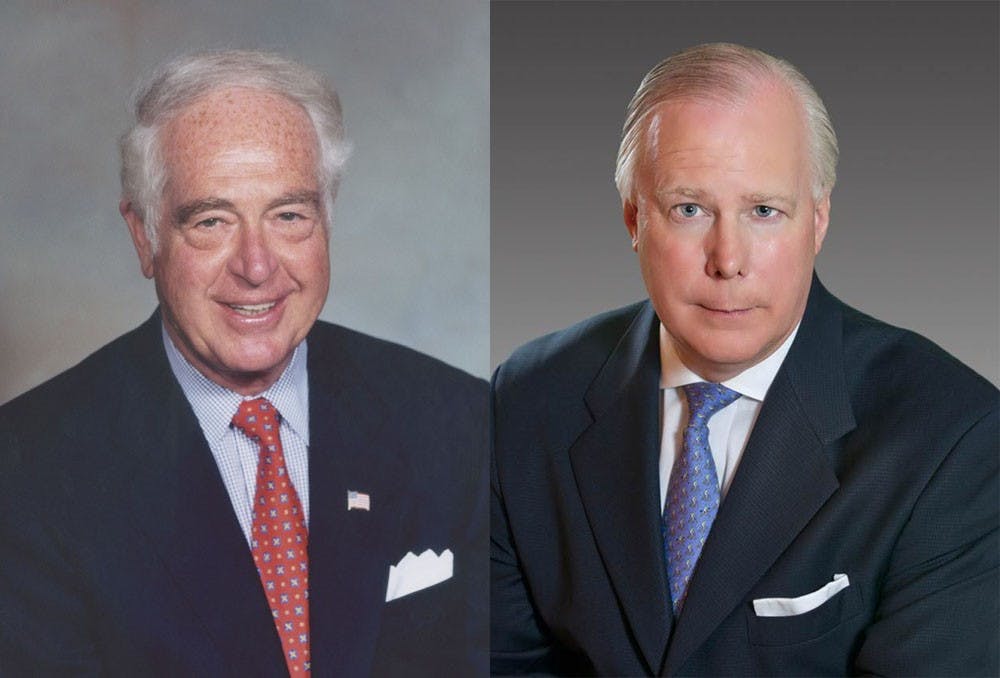The special committee to select University President Teresa Sullivan’s successor convened for the first time Monday. The 22-member committee, most of whom are current or former members of the University Board of Visitors, is co-chaired by Rector William H. Goodwin Jr. and Vice Rector Frank M. Conner.
Sullivan announced in January that she will be stepping down from her position after her contract expires in the summer of 2018. She will then join the University faculty as a professor following a research leave.
The presidential search committee includes 11 current Board members, two student representatives, six faculty and staff representatives and three alumni representatives who are also former Board members. The two student members are fourth-year College student Aryn Frazier and Darden and Law graduate student Phoebe Willis, who is also the student representative to the Board.
While all discussion of specific candidates and desirable attributes happened in a session closed to the public, Conner provided some comments about the search committee’s size and purpose.
Though the search committee is far larger than the five to nine members the Board manual suggests, Conner emphasized wanting to democratize the process and hear a variety of viewpoints.
“The person that we select will have a huge impact for decades — not just [during] his or her tenure, but for decades after that,” Conner said.
Though he acknowledged the Board was unlikely to find a completely flawless candidate, he expressed confidence that they could find the best candidate for the University.
For the second part of the open session, Ron Forehand, a legal advisor to the committee, gave a presentation on the Freedom of Information Act and emphasized the importance of confidentiality.
“FOIA is the most difficult legal framework you’ll need to deal with because it follows you 24/7,” Forehand said. “Presidential searches are incredibly scrutinized. Everybody is going to be watching this very carefully, and you don’t want to make a mistake.”
In addition to clearly outlining the requirements of forwarding FOIA requests to the committee chairs and making all meetings public — except those for which there exists a legal exemption — committee members were also urged to not speak to members of the press and to communicate via phone instead of email whenever possible.
Though Goodwin said their intention was not to hide anything, he said confidentiality was important to protect potential applicants and sensitive discussions until a decision had been made.
All members of the committee were asked to sign a confidentiality agreement which stipulated they would disclose connections with candidates to the committee and turn in all their materials within 30 days of the end of the search process, and would not discuss closed meetings. The six members of the Board who are not on the committee will also be asked to sign this agreement.
Regarding the timeframe of the presidential appointee, Goodwin said the typical timeframe is six to nine months, although there is no set limit.
“This is one of those things where we have to take our time and go at a pace we’re comfortable with,” Goodwin said.
He also said he hoped to hear input from all committee members and from a variety of viewpoints.
“We don’t pretend to have a monopoly on any good ideas or all good ideas,” Goodwin said, speaking on behalf of himself and Conner. “[The process] is subject to change based on your thoughts and ideas.”







